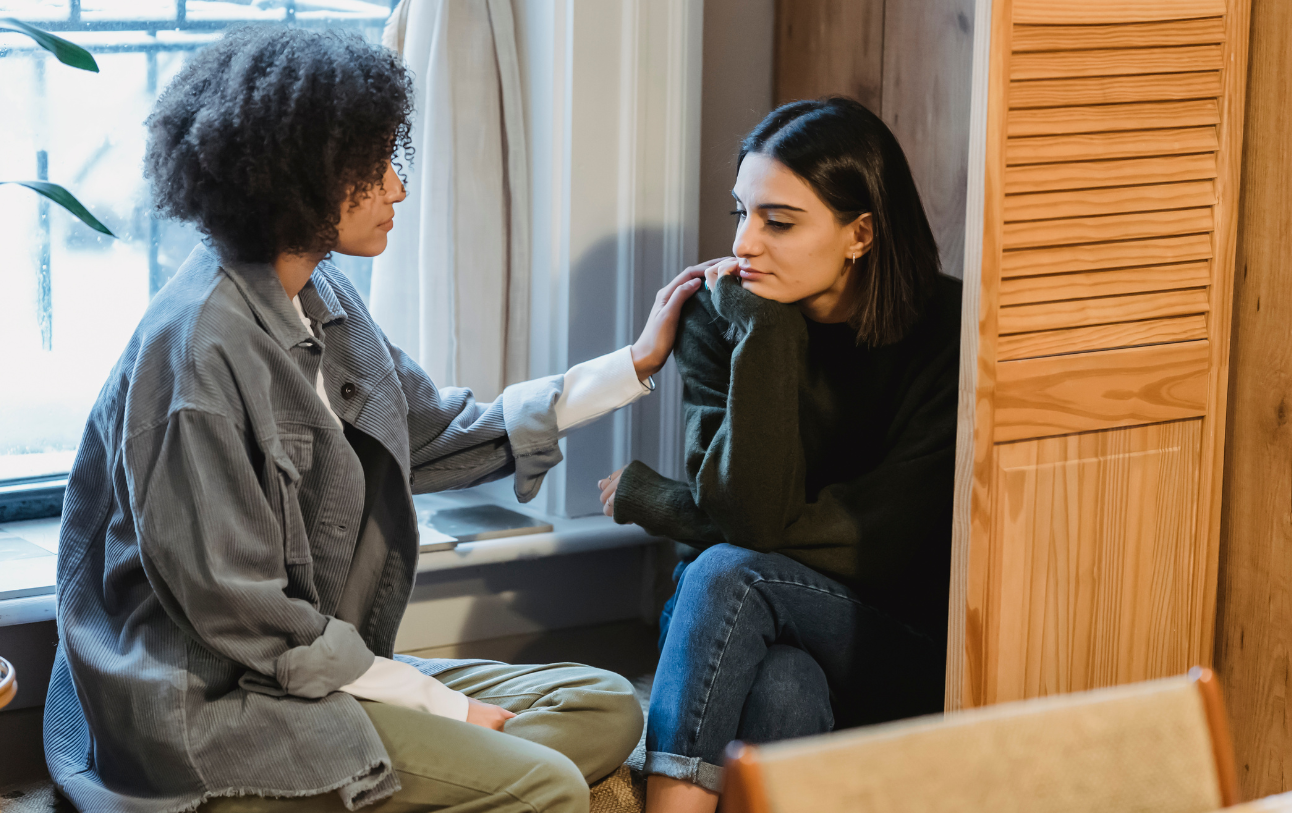
One year on
CEO Suzanne Jacob reflects a year on from Covid-19
A lot can happen in a year, or so the saying goes.
When COVID-19 arrived in the UK in early 2020, domestic abuse services were well aware of the impact a government-sanctioned lockdown would have on victims. Our worst fears were quickly realised.
The frightening acceleration of domestic abuse spread as fast as the virus. Reports to charities and police forces rocketed from Birmingham to Buenos Aires. Between April and June 2020, calls to the National Domestic Abuse Helpline in the UK saw a 65% increase. SafeLives’ own research showed a 90% increase in demand for specialist services. It is never an easy time to be living with someone who controls or frightens you, but national lockdowns, social distancing measures and increased financial insecurity have made an extremely difficult situation even harder. And more dangerous.
Yet in this midst of these trying times, one good thing has surfaced. The world has woken up to domestic abuse.
Since March 2020, the government has offered extra funding, the media has repeatedly engaged with the topic, employers started to consider their duty of care to staff working from home, and in January this year, the Prime Minister directly referenced the needs of victims in a televised press conference. Our collective awareness of domestic abuse has never been greater.
Yet we cannot take our foot off the gas; we cannot go back to sleep.
Over the last few weeks girls and women of all ages, identities and backgrounds have poured out their experiences of abusive and violent experiences in a way they haven’t in many years. We must ensure that this new level of engagement grows. We must make the most of this moment.
Our first priority has to be the essential shift of focus onto the people causing the harm.
Instead of asking, “Why didn’t she just leave?”, we have to start asking “Why doesn’t he stop?”- applying the same principle to harm outside the home, too. This shift in approach is long overdue and will completely change the response to domestic abuse and other forms of inter-personal violence for the future. We must increase understanding of effective prevention and continue to improve our responses to individuals’ harmful behaviour.
Investment is also key. The government has offered short term relief but we need long term investment to ensure sustainable support for all victims, including victims who want to stay safely in their own homes, and those who don’t have settled immigration status.
Many children have ‘disappeared’ behind closed doors for the last 12 months, unable to access the safety and respite of school. The NSPCC has reported calls from concerned neighbours have increased by 50% since the pandemic began. When the Domestic Abuse Bill becomes law in the spring, children will be recognised as victims for the first time, not just witnesses. This is progress but like all victims, we must ensure they receive all the support they need.
The mental health toll of experiencing abuse and violence cannot be understated. New investment in mental health must recognise the prevalence of abusive experiences amongst those who have a need.
We will all know someone for whom domestic abuse is a reality – either now or in their past. We can all find ways to Reach In, ask a friend how they are, offer to do a shop, or simply be there to listen. We are pleased to see schemes such as the Government’s Ask for ANI. The idea was conceived by survivors – a code word that can be used in pharmacies to ask for emergency help. Ask for ANI underscores how all of us can play a role in supporting victims.
We also need to ensure that all police forces, not just over half as it currently stands, are fully trained to understand and respond to coercive and controlling behaviour. Five years on since coercive control became a criminal offence, we need all police officers to enforce the law. And we need to see the courts responding quickly, taking criminal cases forward to prosecution in a timely way and making sure the family courts are a safe place for those experiencing abuse. Training is key too for prosecutors, court officials and judges.
During the pandemic, the boundary between home and work has blurred immeasurably and more than ever, employers have a responsibility for staff wellbeing. We’re glad many employers have joined this conversation and this should be just the beginning. We will continue to call for the government to provide statutory paid leave for domestic abuse victims.
While all of this work is underway, restrictions have begun to ease and vaccines promise an end in sight, victims of domestic abuse are a long way from being out of this storm. In fact, we have little doubt that things will get worse before they get better. Those who make calls for help are a tiny fraction of this picture. We also know that separation is an incredibly dangerous time for victims. If victims decide to make a change now lockdown has lifted and measures start to ease, the stakes are terrifyingly high, as abusers will fight to retain the additional control they’ve enjoyed now for a year.
The world has changed over the last 12 months, and there’s been a particular frenzy in the last few weeks. Many things will not return to how they were. Let’s make sure the raised public awareness of domestic abuse is one of them, not letting victims and survivors be collateral damage around Coronavirus.
We can take advantage of this extraordinary and difficult moment and move forward with the same level of vigour and determination that the pandemic awoke in us a year ago. Our country isn’t safe and healthy until we do.
Please note: from 4 November 2024, Ask for ANI will no longer be available in pharmacies. The scheme was created to address the specific challenges faced by domestic abuse victims during the Covid-19 pandemic.
You may be also interested in

Covid-19 and the domestic abuse sector

